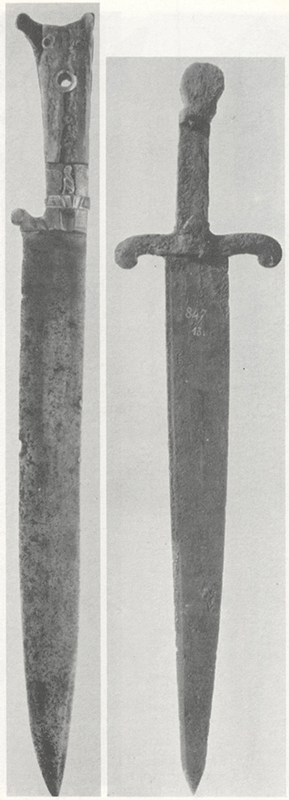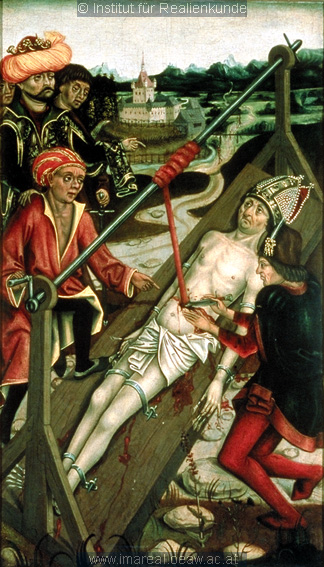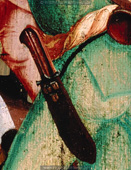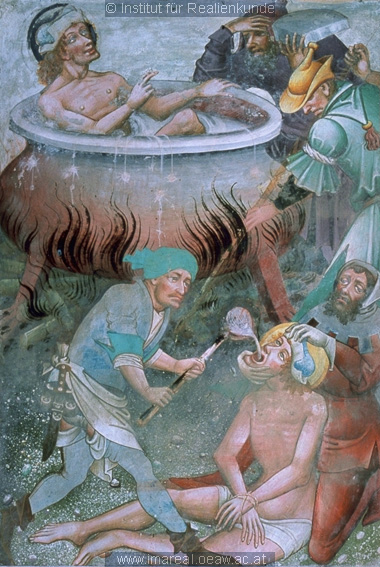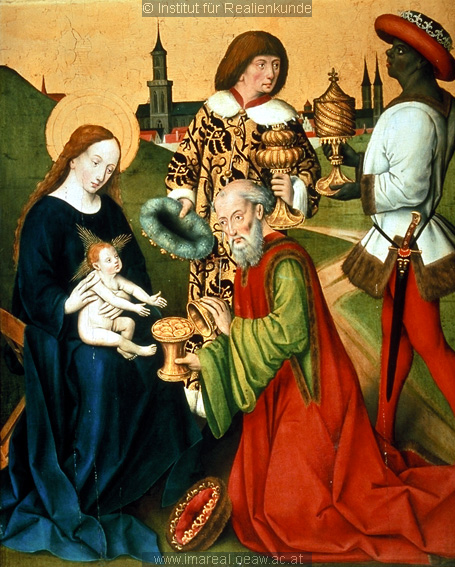Over the last few years I've come across a lot of photos of original and replica Bauernwehr, but I've only ever found two photos of Bauernwehr with quillons.
The attached photo is from the book "Daggers and Fighting Knives of the Western World by Harold L. Peterson".
In the book Peterson dedicates half a page to "Peasant Knives (Hauswehren)". He only mentions those will quillons very briefly but stating "Some Hauswehren had quillons (Plate 43)."
The second photo I found at the following website:
http://www.hermann-historica.de/auktion/hhm48...at48_1.txt
So I'm guessing that these knives were pretty rare. Were they a regional variant perhaps, popular in a particular region only?
Is there any period art depicting them? Does anyone have any further photos to share?
Thanks
Danny

[ Download ]
